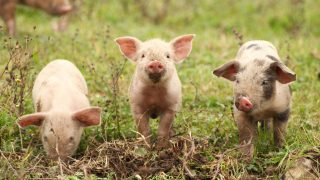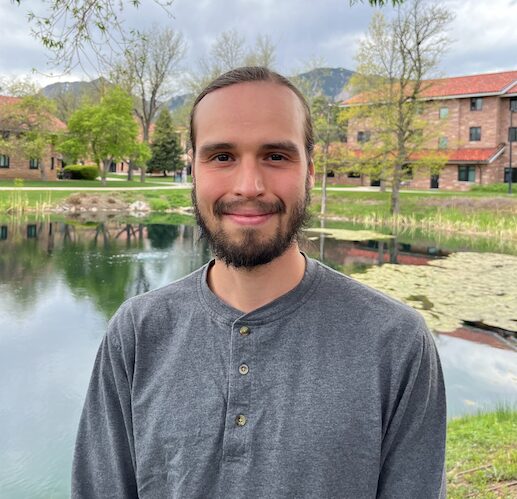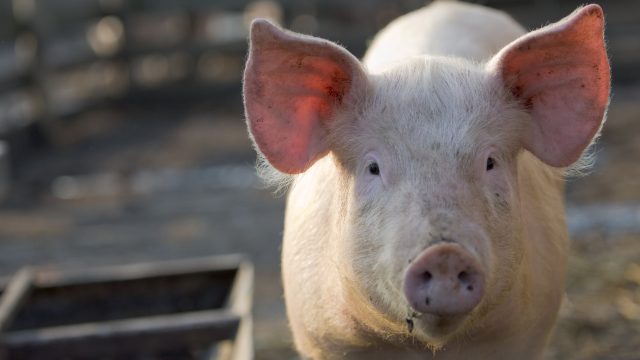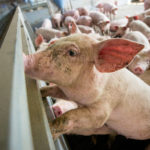
Spotlight: Mason Liddell
Mason Liddell is the inaugural recipient of the Stacey Gordon Sterling Scholarship as part of the Animal Legal Defense Fund’s 2024 Advancement in Animal Law Scholarship series.
Mason Liddell is the inaugural recipient of the Stacey Gordon Sterling Scholarship as part of the Animal Legal Defense Fund’s 2024 Advancement in Animal Law Scholarship series.

This special award not only honors a student who demonstrated a commitment to the Animal Legal Defense Fund’s mission “to advance the interests and protect the lives of animals through the legal system,” but also honors one student each year that shows a tremendous dedication to student success and empowerment.
Recipients are actively involved in their Animal Legal Defense Fund Student Chapter while in law school and show promise in the field after graduation.
Mason Liddell is entering his third year at the University of Colorado Law School. During his first year, Mason founded the Colorado Law Animal Legal Defense Fund and has since served two years as chapter president. Mason is most interested in the intersection of wildlife, animal rights, and environmentalism. He looks forward to clerking with the Animal Legal Defense Fund’s Litigation Program over the summer and to serving as a 3L chapter advisor during his final year of law school.
What Animal Legal Defense Fund student chapter activities are you proudest of and why?
I think that I’m most proud of our series of public service projects. Over the last two years, our chapter has organized public service projects that allow students to gain legal knowledge while doing good things for animals and for the world. As a part of this, we’ve written multiple public comments, sent about a dozen volunteers to legal nonprofits, and drafted legislation that we hope to present to state lawmakers soon.
I’m proud of these activities for a few reasons. First, I am confident that all that time and effort did some good in the world. The issues that we all care about can’t be solved overnight, but I think that we helped move the cause forward together. Second, I believe that this has shown the dedication of the students at CU. Our chapter members contributed about 650 hours of pro bono work for animals in the last year. Coming from students who have so much going on already, I think that dedication means a lot. And finally, I feel that these projects became a cornerstone of my time as the chapter president. Organizing them was sometimes stressful and often difficult, but looking back, I’m extremely glad that I had the chance to work on these projects alongside other CU students. It’s some of my favorite work that I’ve done through law school so far.
Any other noteworthy experience?
I think that the most noteworthy experience I had as a part of the CLALDF was going to the Animal Law Conference in 2023. It was, of course, so exciting to be there with other CLALDF officers to receive the Chapter of the Year Award! But it was exciting on a personal level too. First, I loved the food. Second, and slightly more noteworthy, was getting to be around so many people all interested in the same subjects but with such a variety of backgrounds and levels of experience. Even more so, I could meet people, with whom I’d only even spoken online, in person. It was just a great experience overall and I’d recommend any student go if they can.
As fun as it was to meet all the people at other schools and organizations, I also really enjoyed getting to know the folks with me at Colorado Law all the better. From early morning birdwatching in a park to wandering around Los Angeles at night, there were a lot of unforgettable experiences we had together. So, I know we’re all looking forward to the 2024 Conference!
What is an animal law related goal of yours for the upcoming academic year?
An animal law clinic! Sort of. Maybe that’s more of a long-term goal. In the next year, I suppose, the goal is to design and set up an experiential learning experience for Colorado Law students to earn class credit working on legal issues affecting animals. It’s been a bit of a pie-in-the-sky goal since I arrived at CU, but I’m currently working with the professor of our new animal welfare seminar to organize this effort. Over the next year, we’re hoping to get the school to agree to offer it, at least on an experimental basis. Of course, we have no idea where this will go. And so, I’m sure we’ll have to be flexible. Still, when I started the CLALDF, my goal was to successfully get the school to agree to offer a single animal law class by the time I graduated. Less than a year later, the school agreed to offer two. So, why not shoot for the moon?
What are your plans/goals for post-graduation?
Unfortunately, my answer here is the same as it’s been since I started law school: I’m not sure. I would love to work on issues surrounding wildlife and conservation. But, so far, I don’t know exactly how I want to do that. I’ve enjoyed work of all kinds. So, I’m not sure if I want to go for litigation, policy, academia, or something else entirely. Still, in the short term, I’m sure I’ll apply for a lot of post-grad clerkships, fellowships, and the like. In the long term, I have even less of an idea. I always thought I’d work on policy, but I’ve recently been thinking more seriously about pursuing litigation. And at the same time, I’d love to teach. When I was writing my Note about animal rights and the rights of nature for the Colorado Environmental Law Journal, I became even more interested in the more philosophical and theoretical side of the law. So, that would be a fascinating area to explore too.
While I’m still not sure exactly how I want to engage in the field after I graduate, I’m comfortable simply being open to experiences as they come. Ultimately, all I want to do is work on important issues that I care about and push the field forward in the process. In doing so, I’d be thrilled to practice law in any number of ways.
What is one piece of advice that you would like to pass on to other Animal Legal Defense Fund student chapter leaders?
I would recommend that people think big. Having a student ALDF chapter at your school is undeniably great. But, if you’re in charge of it, you know that it doesn’t just do things by itself. It does things because people in the chapter, often the people who lead it, make it do things. This advice might sound a little bit obvious. And honestly, it probably is. But that means that it’s within your power to make things happen if you want to. So, don’t take your school’s status quo as it is. Colorado Law had no classes in animal law, no ALDF student chapter, and no real connections to animal advocacy NGOs in 2022. Like I said earlier, I thought that even starting a single class here would be a Herculean effort. With the collective work from school administration, other students, and outside lawyers, we got a lot more done than I had initially imagined would be possible. So, reach out to your own school’s administration and see if they’d be open to offering more classes, starting a clinic, creating a standing animal law externship, or something else. I’d be willing to bet it’s more likely than you think.
Learn more about the other 2024 Advancement in Animal Law Scholarship winners.
How We Work
Recent News
-
Court Rules Texas Food Label Censorship Law is Unconstitutional
The law imposed unclear and vague standards on plant-based meat producers that violate the First AmendmentJanuary 29, 2026 Press Release -
Defend the Big Cat Public Safety Act
Urge your federal representative to oppose H.R. 7159, which aims to undo protections established by the Big Cat Public Safety Act, including by creating exemptions allowing direct contact with big cats, such as cruel cub petting. -
State Animal Protection Laws Ranked: Oregon is #1, North Dakota #50
20th edition of ALDF state and territory ranking report highlights major advancements & trends in animal protection across the U.S.January 27, 2026 News
Donate to Protect Animals
Help animals win the legal protections they so desperately need and deserve, and ensure they have an advocate in courtrooms and legislatures across the country.




